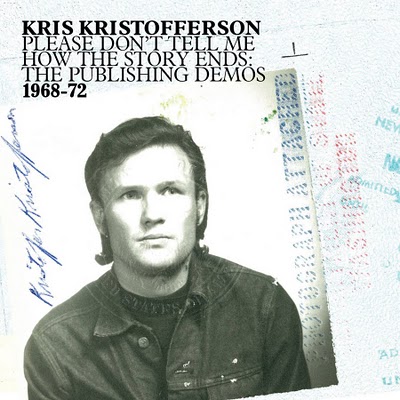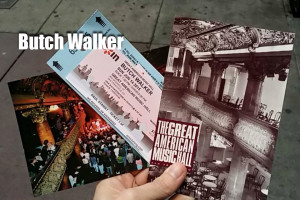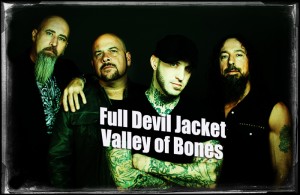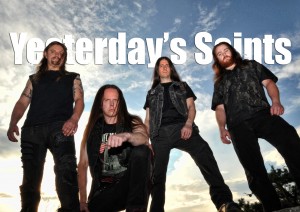Kris Kristofferson – Please Don’t Tell Me How the Story Ends
3 min read
 I told my buddy Ed the other day that I’d gotten my hands on a new Kris Kristofferson album, and that I’d be writing a review for it. He replied snidely with, “Oh, man. I’m sorry.”
I told my buddy Ed the other day that I’d gotten my hands on a new Kris Kristofferson album, and that I’d be writing a review for it. He replied snidely with, “Oh, man. I’m sorry.”
Well in the words of Kristofferson himself, “You’re the only one you’re screwin’, when you put down what you don’t understand.” And Ed, I’m sorry, but if you don’t like Kris Kristofferson, buddy, you can kiss my ass.
Kristofferson is one of the great unsung heroes of American music. Well…unsung may not be the right term. He’s certainly revered in Country circles, but even with the countless Grammy nominations, he’s never had much success in the mainstream. You could say he’s a Rodney Dangerfield in the music industry. That is to say, he gets no respect. The average music fan – even one who counts themselves as a fan of artists such as Johnny Cash or Janis Joplin – wouldn’t mention Kris Kristofferson in their High Fidelity Top 5 Singer/Songwriters Of All Time list. But you get the sense that Kris doesn’t care much for mainstream respect.
Kris started out where a lot of artists start out, working for a living and doing the music thing in his off time. During the mid to late 60s he split his time between flying a helicopter in Louisiana and sweeping the floors of Columbia Studios in Nashville, and all the while he was writing songs. At the same time that Dylan was recording Blonde on Blonde, Kristofferson was writing and recording songs like “Just the Other Side of Nowhere,” “Come Sundown” and a little tune he sold to Roger Miller called “Me and Bobby Mcgee.” This was the beginning of his legacy, and these early recordings are now available for us to hear.
Please Don’t Tell Me How The Story Ends: The Demos 1968-72 gives us a look at Kristofferson’s first takes on songs that became standards in country music. They’ve been recorded by everybody from Johnny Cash and Bobby Bare to Ray Stevens and of course Janis Joplin, but here we get the melodies and lyrics straight from the horse’s mouth. We hear his sense of humor on “If You Don’t Like Hank Williams” and “Getting’ By, High and Strange” as he curses those who don’t appreciate his heroes and extols the virtues of “diggin’ something different every day.” He lets us in as his broken heart mourns the loss of Janis with brutal honesty in “Epitaph (Black and Blue).” And we hear several shades of love throughout with songs like “Little Girl Lost,” “Come Sundown” and the title track “Please Don’t Tell Me How The Story Ends.” All of these songs have been heard before, but never like this.
The thing that stood out to me listening to these recordings was how “at home” they sound with today’s music and especially today’s singer/songwriters. Maybe I was wrong to think that Kris has been largely passed over all these years. These early tracks sound like something that could have been recorded last week by any number of artists. If this were a new album, you might think that Kris was ripping off guys like Will Johnson or Jay Farrar to reinvent himself as the old guy that the hipsters are in to. But the fact that these were recorded over years ago shows the old man may have known what he was doing all along.
The album is set to be released on May 11 by Light in the Attic, and they’ve taken their time putting this thing together. Along with the music there’s over 60 pages of liner notes, pictures and interviews with people like Merle Haggard and the Easy Rider himself Dennis Hopper. Over the past 5 years, Light in the Attic have put together a brilliant look into the history of a great American songwriter whose influenced has reached farther than we’ll ever know. He was in ’68 and is still today one of the best.






